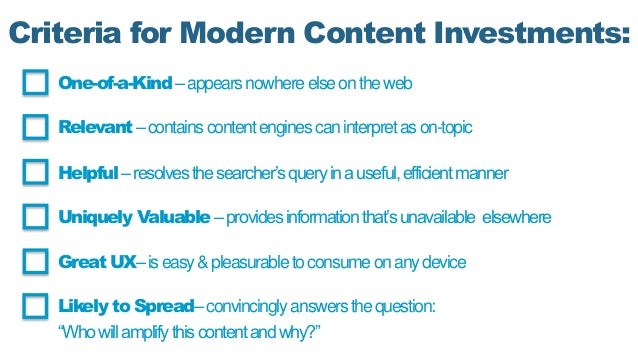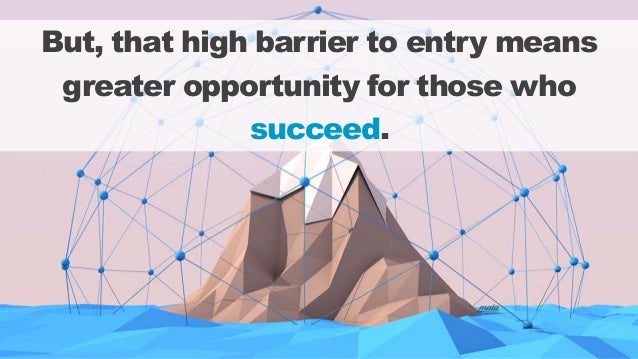by Vic Conner
The bridge between the searcher and the content has been elaborated upon with Google algorithm changes in 2015, outlined in this brilliant, yet very long (83 slides), Moz presentation, created by Rand Fishkin. Who uses Google to find answers? Humans. Who writes the content that is shown on the search engine results page? Humans. “83?! I don’t have time for that!”—we know you’re really busy, so here are the 5 need-to-know golden nuggets important to your business in 2015.
1. Google Speaks our Language and Knows What We Mean
Google now understands the context of a question and tries to answer as correctly as possible, even if it is a location-based question such as “How do I…,” What is the Capitol of..,” “Where is the nearest…,” “News websites for…,” etc.
This opens many more doors for web presence and Internet traffic BECAUSE content marketing will be wildly more powerful if wielded correctly. As an entrepreneur, the saying “if you build it, they will come” has much more truth to it now that robots… ahem… Google is catching up to humans.
For real, if you build a baseball field WITH a website, local people will come. Mostly due to location-based searches, i.e. “Baseball fields available for practice around me,” “Baseball games near me.”
Right down to the point, this means that you should build your website based on an intent, rather than just a key phrase. Provide an answer for questions you know your ideal customers or clients are asking.
On the topic of intent, one of the changes to Google in 2015 will be added understanding of misspelled words. Fun fact: 7% of searches are misspelled. This only means more traffic to you, especially if you sell products like conscientious collectibles or miniature questionnaires. Wihle you mhigt selpl wrods iortccrlney, Gogloe slitl kwons waht you maen. Cool, right?
2. Synonym Understanding Brings Out Your Value
A couple years ago, search engine optimization was about using certain key phrases and keywords, targeted at a certain audience or group. Now, since Google understands synonyms, it is much easier to optimize a webpage and direct it toward a certain audience. Somebody searching for “turquoise umbrellas” will also see “aqua umbrellas” on the search engine results page. So, as long as your content is surrounding a certain topic, you no longer have to worry about key phrase density.
Blah, blah… we could go on for hours about the specifics behind the algorithm change. You’d be more interested in how synonyms apply to you. Here is an example scenario:
You’re selling gigantic metal rainbow colored tricycles online. In fact, in 2010, your online business organically raked in traffic by searching these terms only and nothing else:
• “Metal tricycles”
• “Rainbow colored tricycles”
• “Gigantic tricycles”
Due to selling such a specific product, 2010-Google had a hard time connecting potential customers to your website. Unsatisfied with your sales, you decide to close down and reopen in 2015. After your re-launch, you are surprised to find that many more people are finding your website by searching key phrases with synonyms in them. For example:
• “Metallic three-wheeled bike”
• “Multi-colored tricycle”
• “Huge tricycle”
• “Rainbow big-wheel”
• “Metal tricycles”
• “Rainbow colored tricycles”
• “Gigantic tricycles”
Google in 2015 is like your automatic CMO. Do not be afraid of creating a crazy specific product or service. If it is valuable, in 2015 customers/clients will find you.
3. A Simple Website is Better Than Ever
Many entrepreneurs and business owners out there are daunted at the prospect of having to create a complex website. So… they don’t. Complex, flashy, super-indie-intuitive websites aren’t the standard anymore. Simplicity and minimalism is where it is today.
Rather than looking toward individual pages when Google is classifying content, Google will now look at the page AND the full website URL. Create a solid site architecture that is both easily navigated and organized. This benefits you in two ways:
1. Opens up a new way of getting your business found. When you want searchers to find your service or product, your domain-level key words matter.
Do this:
yourwebsite.com/products/patio/blue/large-umbrella
Not this:
yourwebsite.com/products/large-blue-patio-umbrella
2. Appeals to the viewer by eliminating hard-to-navigate user interfaces and allowing them to focus on the VALUE of your content.
Be organized. People and robots love organization. Make sure that every piece of valuable content on the website takes no more than 4 clicks to get to it.
It makes things simpler, and SKIMMABLE. Speaking of skimming, more and more people are only skimming content they find on the Internet, rather than reading the whole article. This is exactly why the important pieces are bolded or in headlines.
4. Social Bugs Love Multi-Media Hosts
More than before, search ranking is being based upon the ‘spreadability’ of content through social media. For a piece of your content to catch the “social bug,” or become “viral,” it must be unique or particularly useful. In fact, Moz presents the biggest promoters of spreadable content in one of its slides.

Make sure your content marketing fits into one of these categories before publishing.
Not only does this give you more traffic, but also more opportunity to convert viewers into customers or clients. Focus your unique talents and skills into content, then share that with everyone! Any medium of content is more than welcome!—videos, pictures, timelines, blogs, infographics… anything! Create new types of content!
Take advantage of this information revolution to leverage your content marketing campaign.
This sounds really straight forward, but the most important part is in reading between the lines. If Google in 2015 is putting unique content in the spotlight, mundane content is not worth creating, even for the sake of covering one of your key phrase bases. Refer to the slide above to make sure your content meets 2015’s criteria before publishing to your business’ webpage.
As Rand Fishkin puts it, “Overinvest in your unique strengths.” Google will reward you!
5. If you Succeed, the Prize is Huge
These last few months have been packed full of changes to Google’s algorithm, and the changes coming in 2015 are even bigger. The electronic waters of the Internet have been stirred, and it is more difficult to steadily gain speed to catch up to the front of the race. Everything has a silver-lining, though.

“But, that high barrier to entry means greater opportunity for those who succeed.” – Rand Fishkin
It is much like a lottery ticket in the sense of probability: a 1-in-10,000 chance of winning yields a much larger jackpot than a 1-in-10 chance of winning.
If you keep pushing and working hard with all the passion in which you created your service or product, you WILL see a pay-off. Continuous effort is key.
If Internet Marketing is getting harder, the prize must be bigger and shinier.
Keep these 5 nuggets of knowledge in mind and you will prosper. 2015 puts the power in the viewer’s hand, so it is imperative that you learn to wield your content and online presence with dexterity.
Internet marketing and tracking the newest Google algorithm change requires a lot of time and consistent effort, so if you still don’t have time, don’t worry, Vende Digital, a full service social media marketing firm, has your back. Want to know more? Get started by receiving a free No-BS Website Consultation.
